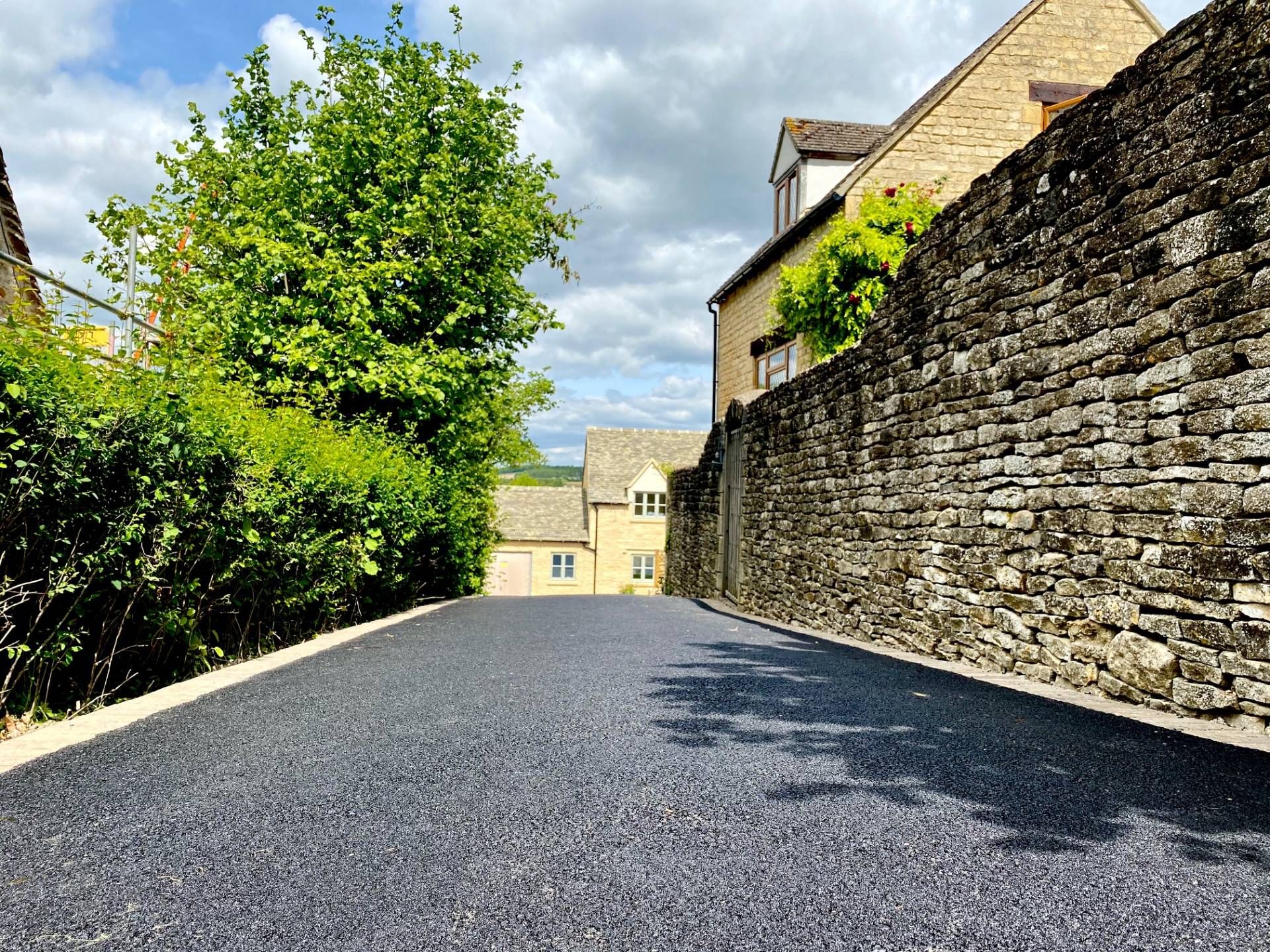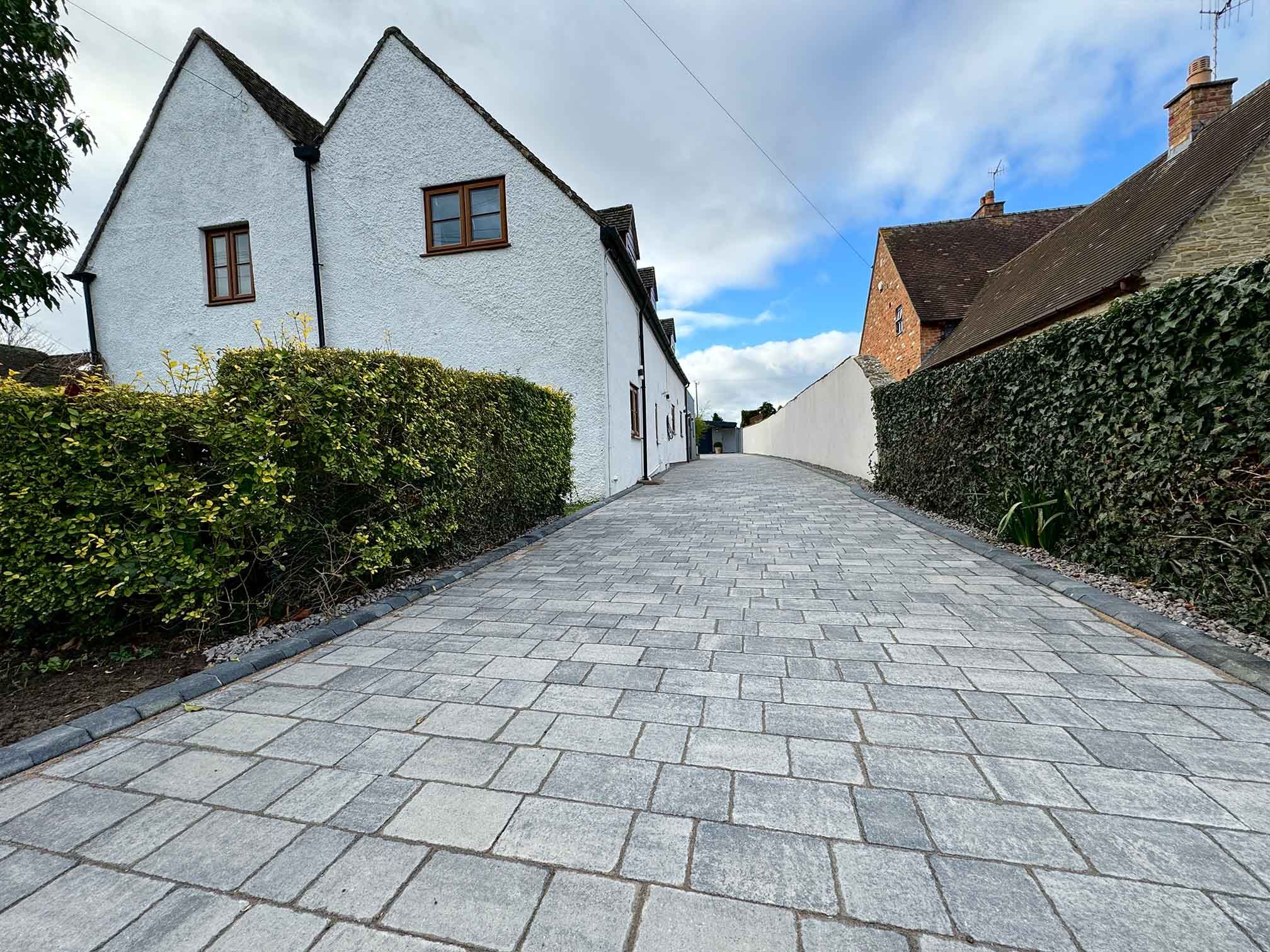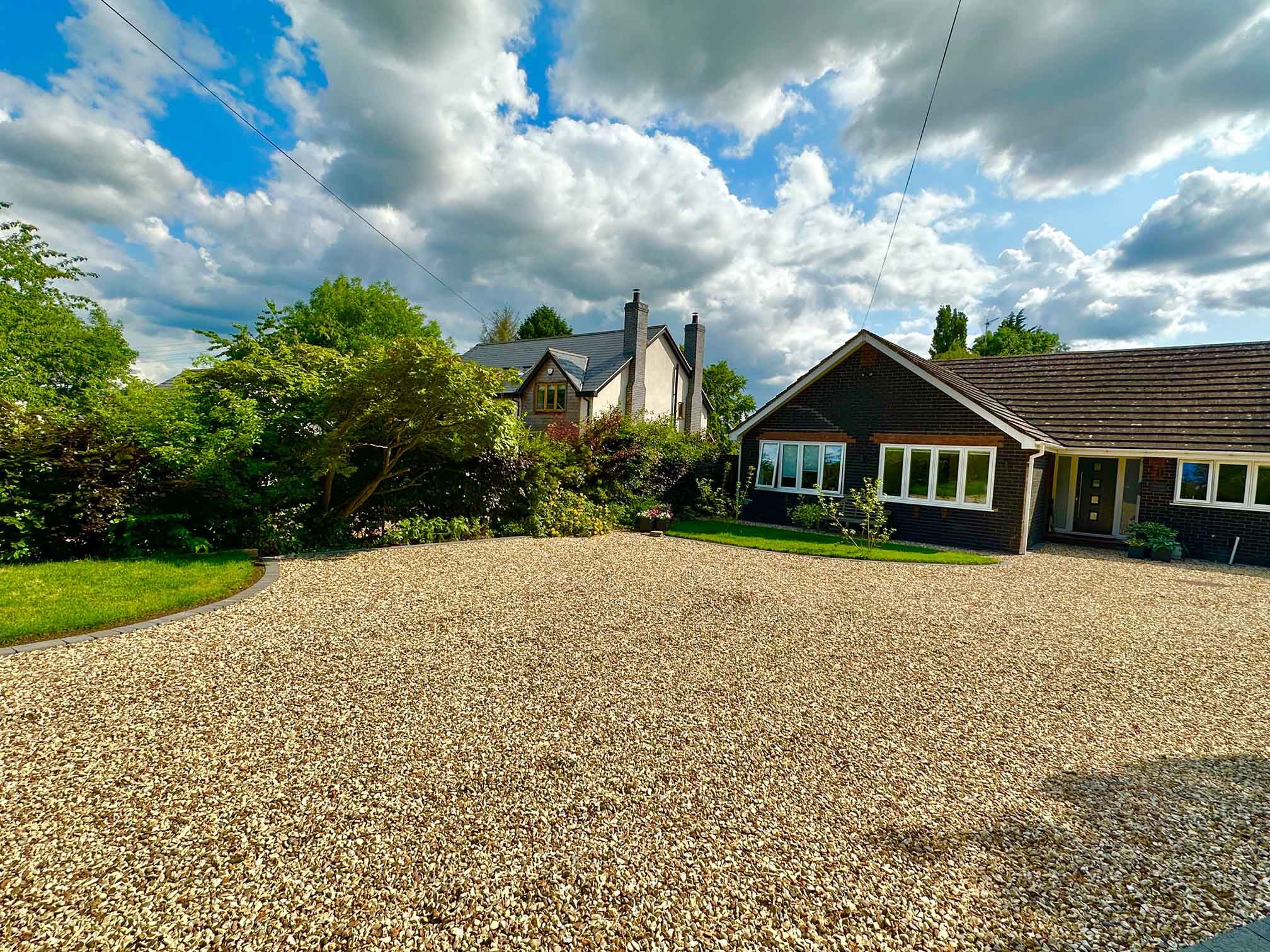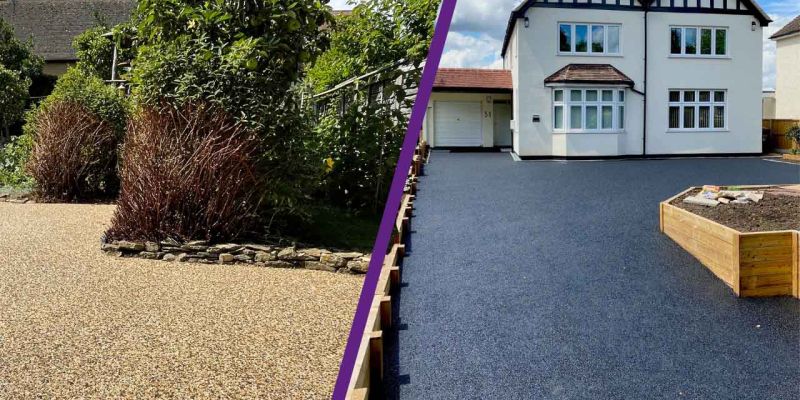
Resin vs Tarmac: Which is the best driveway surface?
Blog
When it comes to choosing the ideal surface for your driveway, the decision can be quite challenging. Both resin and tarmac have their unique advantages and are popular choices among homeowners.
However, understanding the critical differences between these two materials can play an integral part in making an informed decision that suits your lifestyle, aesthetics, and budget. In this article, we will delve into the properties of both resin and tarmac surfaces, comparing their durability, appearance, cost, and maintenance needs, to help you determine the best option for your driveway.
Here at Henson Surfacing, we are long-established experts in driveway surfacing and have been helping customers choose suitable surface materials for 20 years. With decades of experience of groundwork and driveway surfacing we know how important the decision is when choosing a new driveway and so we are here to help you in that endeavour.
What is Resin Surfacing?
Resin surfacing has been gaining popularity in recent years due to its versatility and durability. Composed of a mixture of resin binder and aggregate materials, resin surfacing can be applied directly onto an existing surface to create a sleek, seamless finish. It's commonly used for driveways, footpaths, and even indoor flooring.
The beauty of this surfacing material is that it doesn't just look good, but it's functional too. It's resistant to cracks, UV rays, and frost, making it a great solution for areas that receive heavy foot or vehicle traffic.
Whether it's for a residential or commercial project, resin surfacing offers a wide range of benefits that make it an excellent choice for creating a cohesive and long-lasting surface.
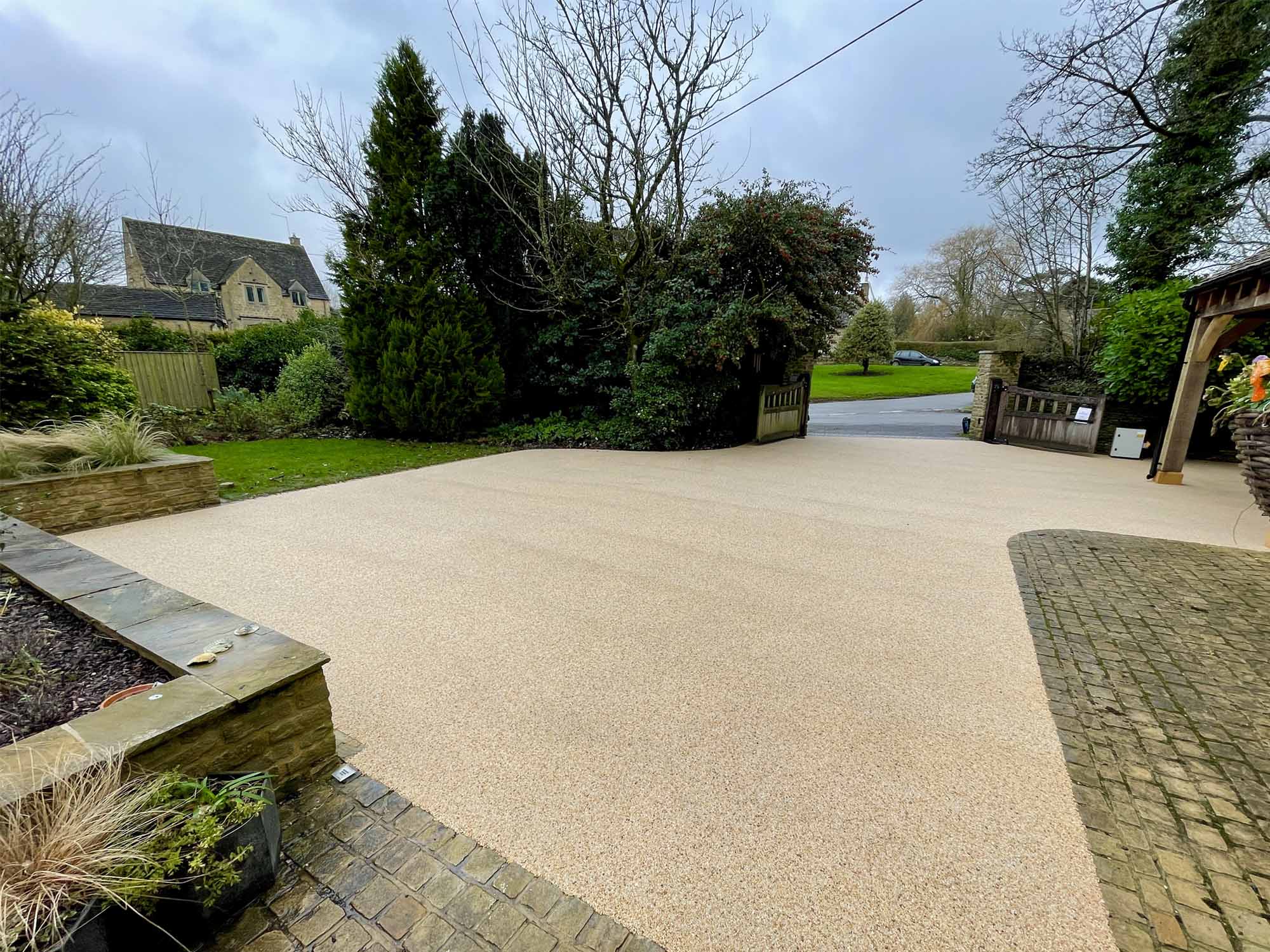
Advantages of Resin Surfacing
Resin surfacing has become an increasingly popular option for those seeking durable, long-lasting solutions for their outdoor surfaces.
Some of the practical advantages of using resin include its ability to reduce puddling, its impressive durability even in harsh weather conditions, and the fact that it can be installed in a variety of colours and patterns.
This makes it a popular choice for driveways, pathways, pool surrounds, and commercial areas. Additionally, the resin is environmentally friendly as it's made from recycled materials and requires less energy to create and install compared to traditional surfacing.
Colour stable & UV resistant
Resin surfaces look great for years to come as they are extremely colour stable and resistant to UV rays. This means you won't have to about fading or discolouration over time, keeping your driveway looking fresh and new throughout the year.
Weed Resistant
One of the common concerns with traditional surfacing materials is that weeds can grow through the cracks and create an unsightly mess. This isn't a problem with resin as it seals the surface to prevent weeds from infiltrating.
Low Maintenance
Resin surfaces are incredibly low maintenance and require minimal effort in order to keep them looking their best. To clean the surface, all you need to do is sweep away any debris or dirt and use a mild detergent if necessary.
Design Options
If you want to create a unique look for your driveway, resin offers endless possibilities. You can choose from a variety of colours and patterns and even experiment with different textures to personalise the surface according to your taste.
Durable
One of the major advantages of using resin is its longevity. It's resistant to cracking, puddling, and UV rays, making it a great choice for areas that experience heavy foot or vehicle traffic. Plus, as it adheres directly to the existing surface, there is no need for costly replacements over time due to damage or wear
Overall, resin surfacing is a smart choice for anyone seeking a visually appealing, long-lasting solution for their outdoor surfaces while also being sustainable and low maintenance.
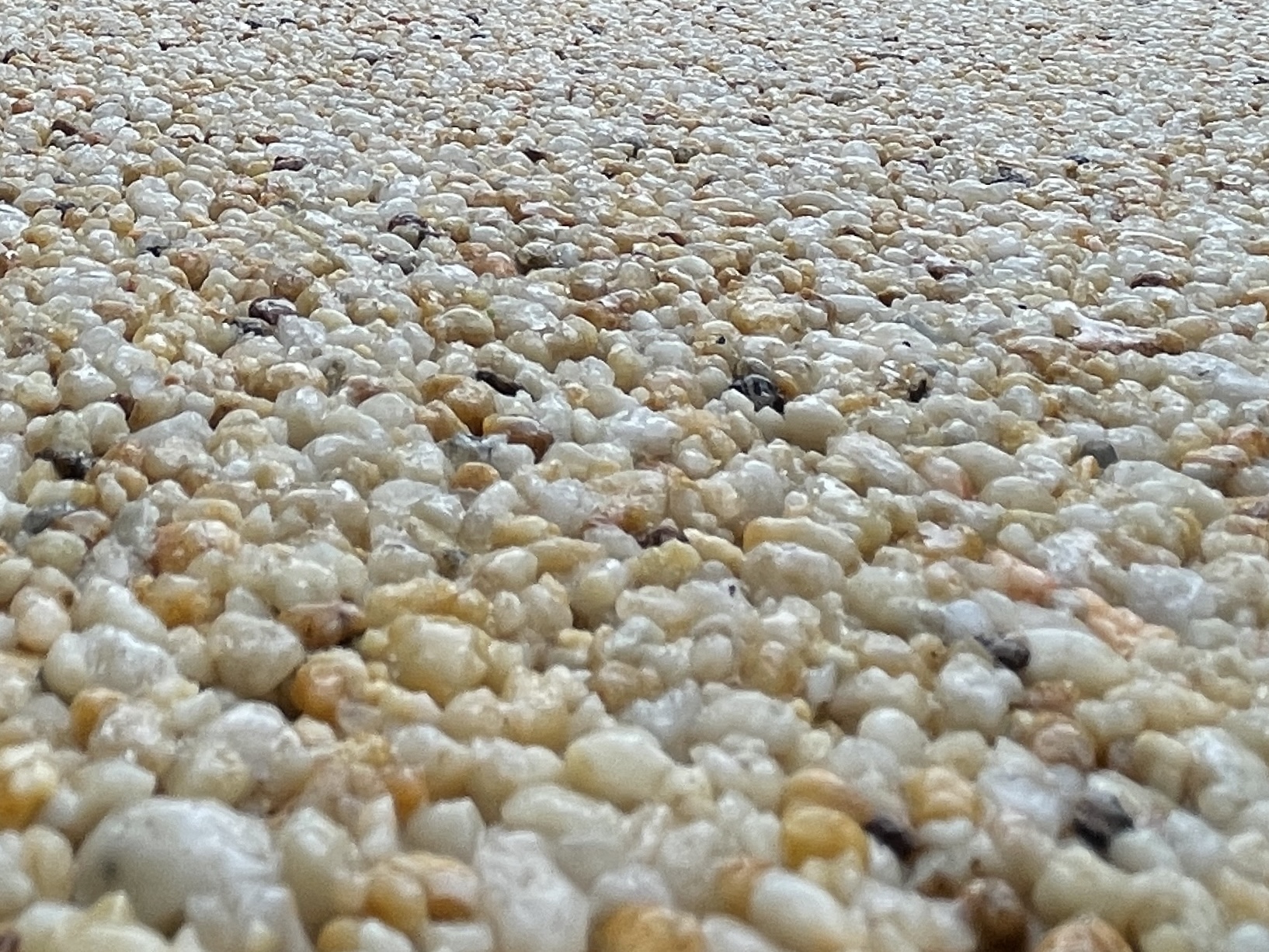
Disadvantages of Resin Surfacing
Despite having numerous advantages, resin surfacing is not without its drawbacks. While it might be the perfect solution for some, it may not meet the needs and expectations of others. For those considering resin as an option, it's crucial to understand the potential disadvantages this material may bring to the table. In this section, we'll shed light on some of the common issues associated with resin surfacing.
Cost
One of the primary drawbacks associated with resin surfacing is its cost. It's more expensive than other materials, such as tarmac or concrete, so if you're on a tight budget this may not be the best choice for you. However, it's important to remember that despite the high upfront costs, it will save on replacement and repair fees in the long
Time to Install
The time needed to install resin surfacing may also be a deterrent for some. The process involves several steps and typically takes several days, as it needs to cure before it can be used. If you're looking for a quick solution, then this material might not be the best option for you.
Difficult to Repair
Should any damage occur to the surface, it can be difficult to repair as it needs to be completely replaced. While this isn't a major drawback, it's important to keep in mind that any accidental damage could require a full replacement of the area.
What is Tarmac Surfacing?
Tarmac surfacing is a common sight on roads and pavements worldwide. This material is made up of crushed stones and a liquid binder such as tar or bitumen, which are mixed together to create a strong and durable surface. It's often used for driveways, pathways, sports courts, and public areas such as playgrounds.
Tarmac has been around for decades and it's still a popular choice due to its strength and affordability. It's relatively easy to install and maintain, and it also provides a wide range of design options as it can be mixed with aggregates of different shapes and colours.
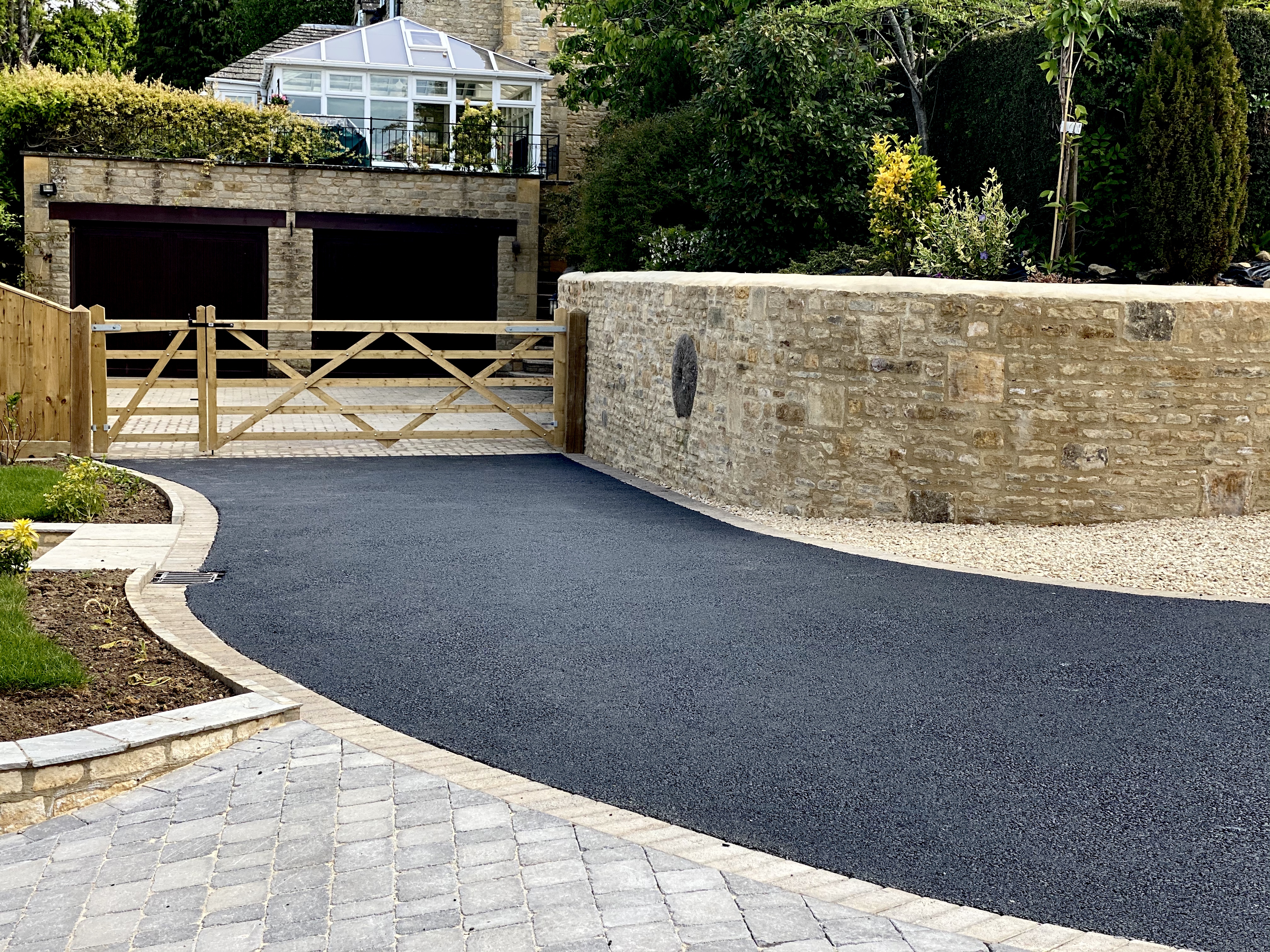
Advantages of Tarmac Surfacing
Tarmac is an ideal surfacing material for those looking for a strong, durable surface that won't break the bank. Here are some of the advantages associated with using tarmac:
Cheap and Affordable
Compared to other surfacing materials, tarmac is relatively inexpensive. This makes it a great option for those on a tight budget.
Long Lasting
Tarmac surfaces are incredibly strong and durable, meaning they can withstand heavy foot and vehicle traffic for many years without experiencing significant wear and tear.
Easy to Maintain
Tarmac surfaces are easy to clean and maintain, just a quick sweep is all you need to do in order to keep them looking their best. Plus, they don't require any special treatments or products to stay in perfect condition over time.
Weather Resistant
Tarmac surfaces are resistant to harsh weather conditions, making them an ideal option for outdoor areas that experience extreme temperatures or heavy rainfall.
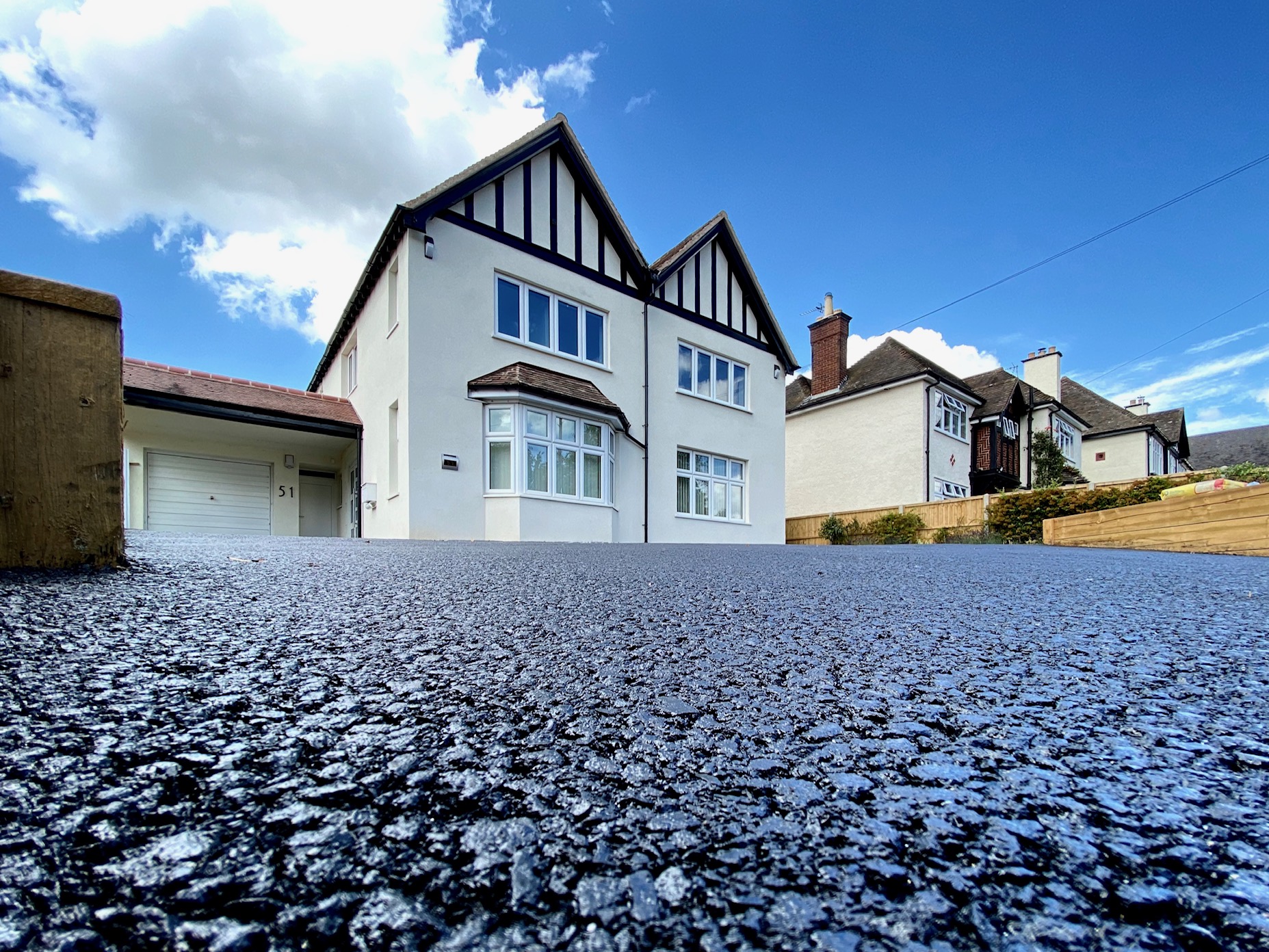
Disadvantages of Tarmac Surfacing
While there are several advantages to using tarmac, it's important to note that it also has some drawbacks. Here is what you need to consider before choosing this material for your surfacing project:
Limited Design Options
When compared to other materials such as resin, tarmac offers limited design options. While it can be mixed with aggregates to add colour or texture, this still isn't as diverse as the options available with resin.
Susceptible to Damage
Tarmac is susceptible to cracking and puddling over time due to wear and tear from heavy traffic. This can be an issue if you experience frequent use on your driveway or pathway, as it may require costly repairs in order to keep it in good condition.
Difficult to Repair
If damage does occur, it can be difficult and time-consuming to repair tarmac surfaces as they need to be completely redone. This could be an issue if you don't have the time or resources available for such a project.
Resin vs. Tarmac: A Comparative Analysis
When it comes to selecting the ideal surface for your home or business, there are several features to consider. Resin surfaces are known for their practicality and durability. They are a long-lasting option that can stand up to the elements.
In contrast, tarmac is easy to install and offers a smooth and seamless surface that is perfect for a variety of settings. It's essential to consider factors such as cost-effectiveness and maintenance as well. In terms of cost, resin surfaces are a cost-effective choice as they require very little maintenance, saving you a fortune in the long run.
However, tarmac surfaces are also reasonably priced and can last for years with appropriate maintenance. Aesthetically speaking, both surfaces have their unique charm. Resin surfaces offer beautiful designs and patterns, while tarmac has a sleek and minimalistic aesthetic appeal. Ultimately, it boils down to personal preference and what best suits your needs.
In conclusion, both resin and tarmac surfaces have their unique strengths and limitations. The selection between the two largely depends on the practical needs, aesthetic preferences, and budget constraints of the user.
Resin, with its durability and attractive designs, can be an appealing choice for those willing to invest more upfront, while tarmac delivers a reliable, cost-effective solution with a sleek and simple aesthetic.
It's worthwhile to thoroughly evaluate your personal requirements and consult with a surfacing expert before making your final decision. Ultimately, the key is to choose a surface that not only meets your immediate needs but also provides long-term value and satisfaction.
